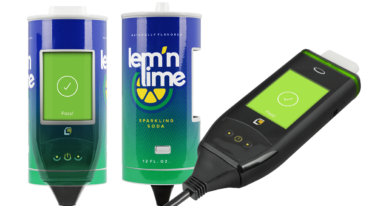
It happened. You had too much to drink and didn’t have a backup plan for getting home, so you got behind the wheel thinking you’d be okay. Then you see and hear the sirens. You get pulled over, and you’re hit with a DUI charge.
Driving under the influence of alcohol or drugs is a big deal. According to the Centers for Disease Control and Prevention, about 29 people die every day in motor vehicle crashes involving an alcohol-impaired driver. That averages out to about one death every 50 minutes. State DUI laws are put in place to help curb those preventable deaths and ensure the safety of you, other drivers, and pedestrians.
Getting arrested for a DUI comes with plenty of consequences, but it’s not the end of the world. Here are some tips for life after a DUI and how you can learn to move forward.
Short-Term Consequences of a DUI
Getting arrested for a DUI can come with a wide range of immediate consequences, some of which can last long after your initial sentencing period.
License Suspensions
Most states have laws outside of DUI charges to hold drivers accountable and further discourage drunk driving. Many states implement admin per se laws, which are enforced by the state’s Department of Motor Vehicles or related administration. Admin per se laws allow an arresting officer to immediately suspend your license if you fail or refuse a chemical breath test under suspicion of driving under the influence.
Along with admin per se laws, some states enforce implied consent laws. Implied consent means that, by owning a driver’s license in that state, you automatically consent to a chemical test administered by an arresting officer who has reasonable suspicion that you may be driving under the influence. By refusing the test, you are breaking this law and will be subject to a license suspension (among other potential penalties).
Both admin per se and implied consent laws are in addition to any suspensions that you may suffer if you are found guilty of a DUI in court. That means that your various license suspensions can easily stack up, leading to several years without your driving privileges.
Fines and Fees
If you are found guilty of a DUI, you will likely have to pay a fine, but you’ll also have to deal with court and legal fees, license reinstatement fees, car impoundment costs, and various other costs. All of these costs can snowball, leaving you with quite a bit of debts to pay.
Jail Time
Most first and even second time DUI offenses won’t involve extended jail time, though you will be taken into custody when initially arrested and placed in a holding cell. Regardless, any amount of time spent in jail is bad. It’s actively taking away your time and freedom, and getting out of jail often means posting bail, which just means even more fees you need to pay.
Court Dates
A DUI arrest invariably leads to court dates, though the amount of court dates varies from case to case. All of them start with an arraignment, during which you stand before a judge who:
- Reads your charges
- Asks if you require an attorney if you don’t already have one
- Ask your plea
- Make any alterations to your bail
If you plead guilty to your DUI, the arraignment should be your first and only time in court. The judge will decide the appropriate punishments, and you generally shouldn’t have to appear in court again.
However, if you plead not guilty, you will need to attend a preliminary hearing followed by a trial. During the preliminary hearing, the judge will determine if there’s enough evidence against you to even hold a trial. The judge can either dismiss the case entirely or send it to trial where a jury will decide your fate.
While you can try your best to make court dates work around your schedule, chances are high that at least some of the court dates will coincide with your work or school schedule, meaning you’ll miss classes and work hours. The latter will become particularly troublesome when you have all your fines and fees to pay.
Installation of an Ignition Interlock Device
Ignition interlock devices act as a safeguard, so even if you do maintain your driving privileges, IIDs make sure that you maintain sobriety. Although ignition interlock systems are generally easy to use, they can still be a pain, adding an extra step to your driving routine and making things just that much more inconvenient.
Long-Term DUI Consequences
Your DUI can lead to consequences that echo outward from one bad decision, leading to some long-term consequences.
Higher Insurance Rates
A DUI on your insurance record signals that you are a “high risk driver,” which inevitably results in higher monthly insurance premiums. Some insurance companies may even refuse to cover any drivers with a DUI on their records, which can make things even harder if you’re trying to reinstate your driving privileges.
License Revocations
Based on the severity of your case and the jurisdiction where you committed the DUI, you may suffer a license revocation instead of a suspension. Revocations tend to be more permanent in nature, making it harder to reinstate driving privileges once the revocation period has ended. If you drive with a revoked license, the penalties are much harsher than if you drive with a suspended license.
Background Checks
Potential employers, landlords, and college financial aid institutions can run background checks on you. A felony or misdemeanor DUI will show up on these background checks. While a DUI will not necessarily disqualify you from getting a job, renting an apartment, or receiving financial aid, it can make things significantly harder and more inconvenient.
Employment Issues
Similarly, some employers may be uncomfortable keeping on an employee who has committed a DUI, leading to your termination. Jobs that require driving any sort of vehicle may be completely inaccessible to you because you have a DUI charge on your record.
Tips for Getting on with Your Life
Although DUIs do come with plenty of penalties in both the short, and long-term, it’s important to understand that you can still live a complete, thriving life though not without its difficulties. Here are some tips to help you better get on with your life and move on after a DUI.
Hire a Lawyer
Regardless of how things shake out after your DUI arrest, it’s always a good idea to hire a knowledgeable attorney. During a trial, a lawyer can help to reduce any sentencing, which can go a long way if you’re dealing with high fees and potential prison time. Along with providing representation during a trial, a lawyer can provide you with constant legal counsel, informing you of your rights and guiding you through any next steps. More than anything, dealing with legal troubles of any kind can be intimidating and harrowing. Having someone who understands the law and has been trained in the field can provide you with some comfort and peace of mind when you’re not emotionally at your best.
Stay On Top of Your Ignition Interlock Device Program
If you are required to install an ignition interlock device, make sure you stay on top of everything that goes into owning an IID. Along with everyday usage, that also means regular maintenance and calibration. All of this ensures that the device is in proper working order, which promises smooth sailing so that you can finish your IID program without any hassles. Failure to provide breath samples or take your device in for maintenance can lead to more penalties, including extended IID periods, fines, and potential license suspensions or revocations.
Look Into Expunging your DUI
Expunging essentially refers to removing a DUI from your record, which essentially prevents potential employers, lenders, landlords, and other civilians from knowing about it through a background check. However, even expunged DUIs are still viewable by court officials and law enforcement. Some states will not allow DUIs expunged records.
Attend Drunk Driving Programs and Undergo Evaluation
Depending on the jurisdiction and the penalties of your case, the judge may require that you complete a drug and alcohol education program and undergo an alcohol evaluation. Drug and alcohol classes offer information about drunk driving prevention as well as an assessment of your drinking habits. Although this might seem like obvious information, take these classes seriously. You are there because you made a mistake, and you may as well make the most of it by learning as much as you can so that you don’t repeat that mistake.
Drug and alcohol education programs also usually involve an evaluation with a trained counselor. This counselor will speak with you and assess any patterns of alcohol consumption in your life to determine if you may have an abuse disorder. This goes far beyond a DUI. Understanding if you have a problem with alcohol can make a huge impact on your life, and it could be the first steps to improvement.
Look Into Therapy or Support Groups
Going to Alcoholics Anonymous or support groups gives you an open and confidential forum to speak your mind and air out your complicated emotions while providing you with a dependable group of people to lean on when things get hard. If you don’t feel comfortable in group settings, you may also consider one-on-one counseling or therapy, which can also help you work out your emotions and provide you with tools and techniques to maintain mental and emotional balance.
Avoid Drinking and Driving Again
If your initial DUI offense hasn’t convinced you yet, you definitely do not want to go through another DUI. Repeat DUI offenses will result in even harsher criminal and administrative penalties. Always have a backup plan for getting home if you plan to be out drinking. This is assuming that you are not evaluated to have a drinking abuse disorder.
Reevaluate Your Drinking Habits
Whether or not you work with a professional or are diagnosed with an abuse disorder, it’s important to reevaluate your own drinking habits. Contrary to what society might show or tell you, you don’t always need to drink to have a good time. More often than not, being around the right people, in the right atmosphere, is enough to have a great time. Try to avoid social situations or environments that may trigger your drinking. You may also need to rethink your social circles if your friends or family members seem unsupportive or otherwise do not take your DUI situation seriously.
Above all, accept your situation. It’s good to think about the mistakes you’ve made and take the situation seriously, but it doesn’t help you or anyone else to linger on those mistakes. Fines, suspensions, and penalties all go away, given plenty of time and money. Understand that a DUI does not need to define you as a person. You can still rebuild and turn your life into something good and positive.
Sources:


